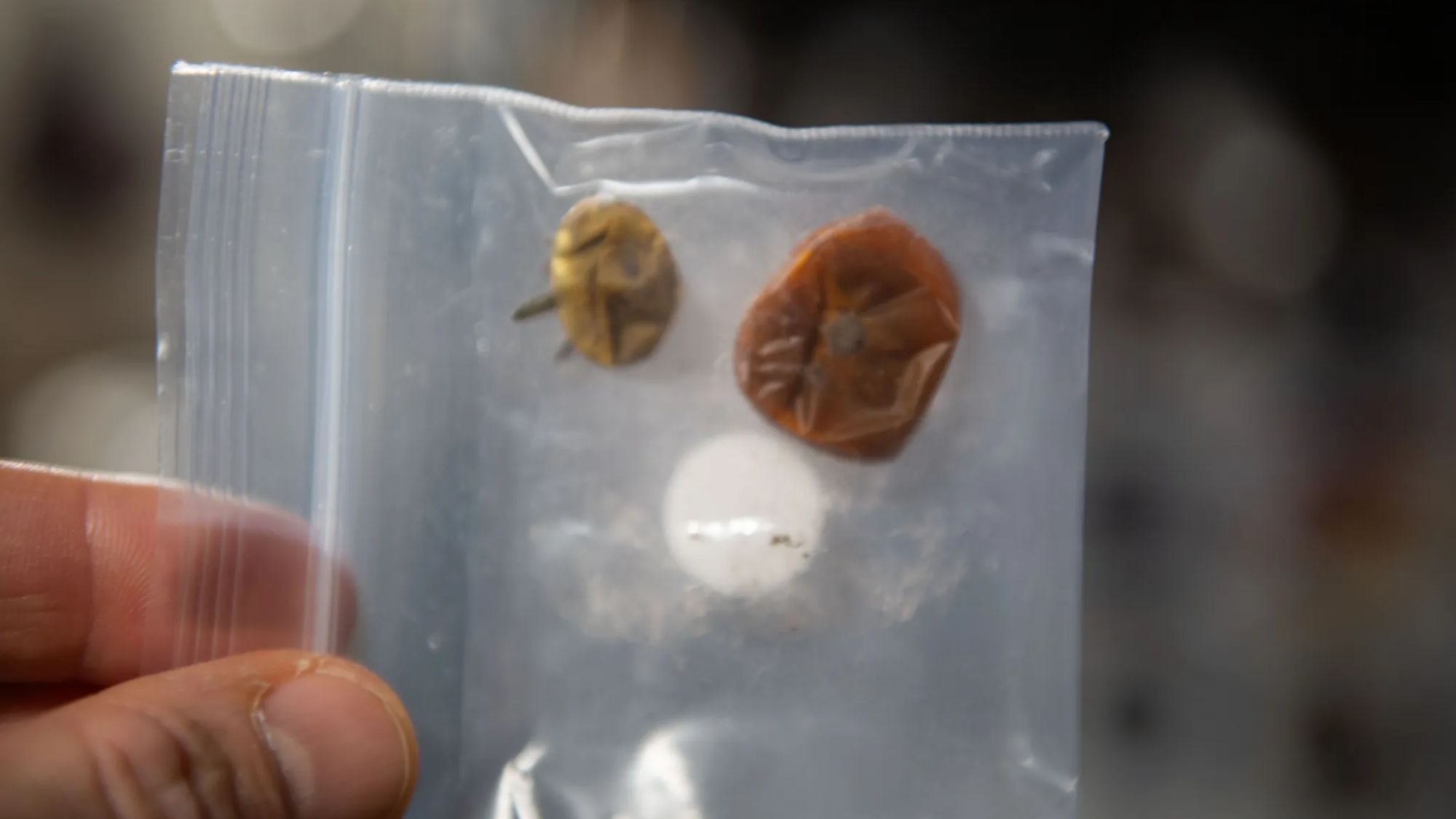NASA reveals what 2 tomatoes look like after being lost in space for 8 months (video)
Turns out there were two lost tomatoes, not just one.
We finally have imagery of NASA's lost space tomato — and surprise, there are two.
NASA released footage of two tiny tomatoes that were lost in 2022 after astronaut Frank Rubio harvested them on the International Space Station. The chance discovery in the six-bedroom complex showed us how the 17% humidity onboard affects food in a Ziploc bag; Rubio had temporarily stowed the food inside and found it floated away in the meantime.
"Despite being nearly a year after the initial disappearance of the tomatoes, the fruit was found in a plastic bag dehydrated and slightly squished," NASA officials wrote in an update Thursday (Dec. 14), without disclosing the exact find location. "Other than some discoloration, it had no visible microbial or fungal growth."
Rubio previously only alluded to a single lost tomato, which NASA has now said was grown as part of the eXposed Root On-Orbit Test System or XROOTS experiment in 2022 (not VEG-05 in 2023, as previous media coverage suggested.) "The experiment uses hydroponic and aeroponic techniques to grow plants without soil or other growth media and could provide suitable solutions for plant systems needed for future space exploration missions," the agency added.
Related: ISS astronauts find tomato that was lost in space for months (video)
While the find was a lighthearted moment for Rubio, who has since returned home from his one-year mission, NASA added that the real purpose of growing food on the ISS is to practice techniques that could be used during future moon and Mars exploration. And there's more than one experiment looking into providing astronauts with fresh food.
VEG-05 was testing out production of dwarf tomatoes and other foods, while the newer Planet Habitat-03 "is one of the first multi-generational plant studies aboard the space station which could help researchers assess whether genetic adaptations in one generation of plants grown in space can transfer to the next." (Habitat-03 is currently packed onboard a SpaceX Dragon spaceship awaiting return to Earth later in the month; sadly, the more famous XROOTS tomatoes were discarded.)
Breaking space news, the latest updates on rocket launches, skywatching events and more!
And there are intangible benefits to space food as well. "The benefits of growing plants in space don't stop there," NASA officials added. "Astronauts report there are psychological benefits to time spent gardening, increasing their quality of life in space, and boosting their morale."

Elizabeth Howell (she/her), Ph.D., was a staff writer in the spaceflight channel between 2022 and 2024 specializing in Canadian space news. She was contributing writer for Space.com for 10 years from 2012 to 2024. Elizabeth's reporting includes multiple exclusives with the White House, leading world coverage about a lost-and-found space tomato on the International Space Station, witnessing five human spaceflight launches on two continents, flying parabolic, working inside a spacesuit, and participating in a simulated Mars mission. Her latest book, "Why Am I Taller?" (ECW Press, 2022) is co-written with astronaut Dave Williams.

